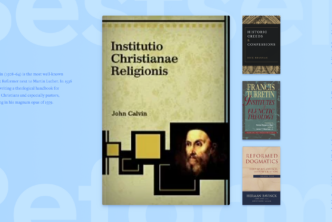One of the main ideas presented in The Unseen Realm is a mosaic of Scripture that employs the worldview of an ancient Israelite to better understand the context of the Bible. Insights and new understanding is revealed when we read the Bible from the perspective of its authors and intended audience, a perspective that includes a full picture of the supernatural realm. Why has this perspective fallen by the wayside in modern Christianity?
Here’s what Dr. Heiser has to say about why it’s so important to recover this ancient worldview.
Note: the following is adapted from Chapter 2 of The Unseen Realm.
***
Modern Christianity suffers from two serious shortcomings when it comes to the supernatural world.
First, many Christians claim to believe in the supernatural but think (and live) like skeptics. We find talk of the supernatural world uncomfortable. This is typical of denominations and evangelical congregations outside the charismatic movement—in other words, those from a background like the one I grew up in.
There are two basic reasons why noncharismatics tend to close the door on the supernatural world. One is their suspicion that charismatic practices are detached from sound exegesis of Scripture. As a biblical scholar, it’s easy for me to agree with that suspicion—but over time it has widely degenerated into a closed-minded overreaction that is itself detached from the worldview of the biblical writers.
The other reason is less self-congratulatory. The believing church is bending under the weight of its own rationalism, a modern worldview that would be foreign to the biblical writers. Traditional Christian teaching has for centuries kept the unseen world at arm’s length. We believe in the Godhead because there’s no point to Christianity without it. The rest of the unseen world is handled with a whisper or a chuckle.
The second serious shortcoming is evident within the charismatic movement: the elevation of experience over Scripture. While that movement is predisposed to embrace the idea of an animate spiritual world, its conception of that world is framed largely by experience and an idiosyncratic reading of the book of Acts.
Those two shortcomings, while seemingly quite different, are actually born of the same fundamental, underlying problem: Modern Christianity’s view of the unseen world isn’t framed by the ancient worldview of the biblical writers. One segment wrongly consigns the invisible realm to the periphery of theological discussion. The other is so busy seeking some interaction with it that it has become unconcerned with its biblical moorings, resulting in a caricature.
I’m concerned about both shortcomings, but since this book derives from my own story, the problem of the Christian skeptic hits closer to home and is my greater concern.
If your background, like mine, is in the evangelical, noncharismatic branch of Protestantism, perhaps you consider yourself an exception to the patterns I’ve identified, or think that I’ve overstated the situation. But what would you think if a Christian friend confided to you that he believed he had been helped by a guardian angel, or that he had audibly heard a disembodied voice warning him of some danger? What if your friend claimed to have witnessed demonic possession, or was convinced that God had directed her life through a dream that included an appearance of Jesus?
Most of us noncharismatics would have to admit that our initial impulse would be to doubt. But we actually have a less transparent reflex. We would nod our head and listen politely to our friend’s fervent story, but the whole time we would be seeking other possible explanations. That’s because our modern inclination is to insist on evidence. Since we live in a scientific age, we are prone to think these kinds of experiences are actually emotional misinterpretations of the events—or, worse, something treatable with the right medication. And in any individual case, that might be so—but the truth is that our modern evangelical subculture has trained us to think that our theology precludes any experience of the unseen world. Consequently, it isn’t an important part of our theology.
My contention is that, if our theology really derives from the biblical text, we must reconsider our selective supernaturalism and recover a biblical theology of the unseen world. This is not to suggest that the best interpretation of a passage is always the most supernatural one. But the biblical writers and those to whom they wrote were predisposed to supernaturalism. To ignore that outlook or marginalize it will produce Bible interpretation that reflects our mind-set more than that of the biblical writers.
***
Discover how The Unseen Realm reveals the ancient worldview of the Bible. Get The Unseen Realm now!






